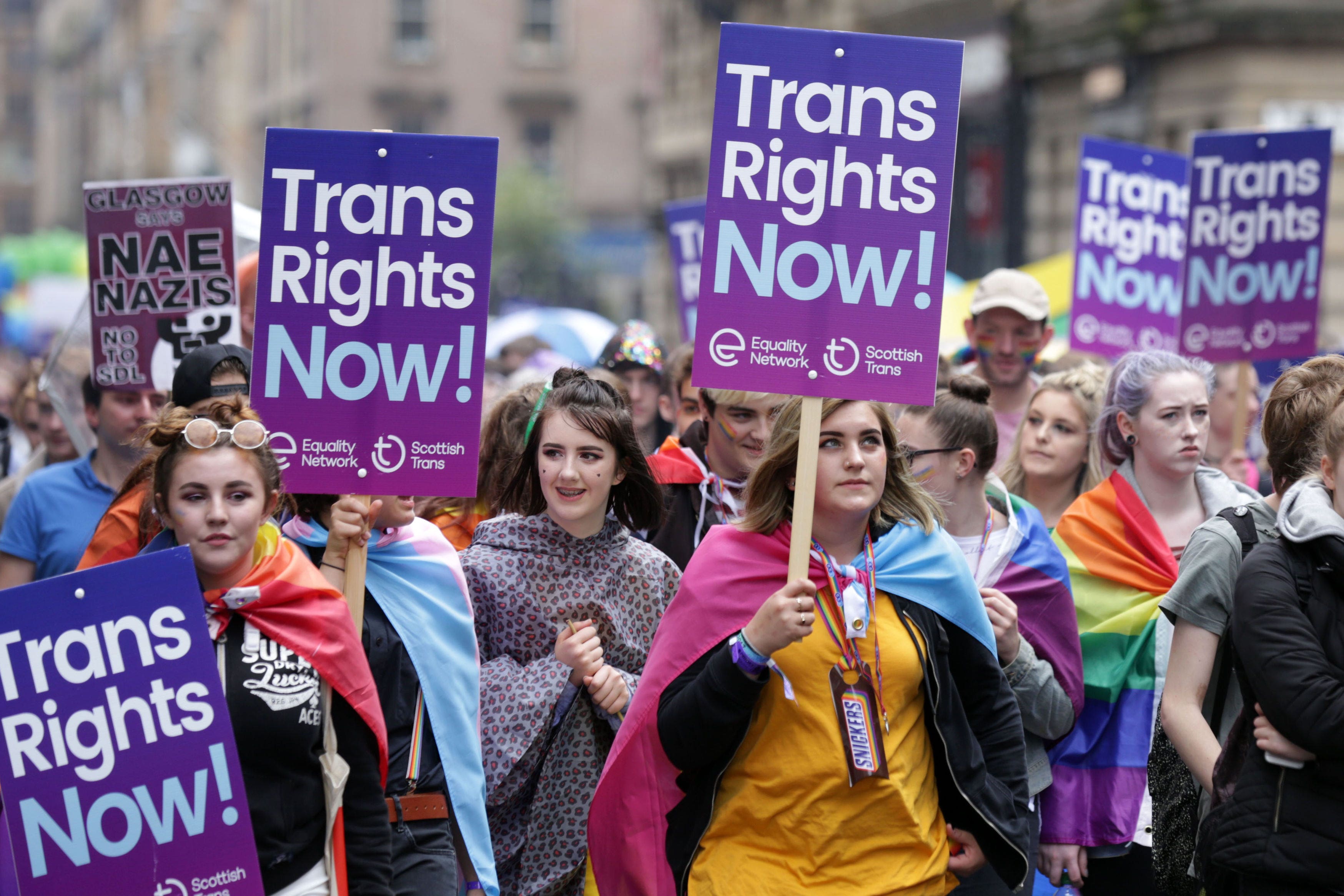Scotland’s Gender Recognition Reform Bill – What it means and what comes next
Some of the key points in the debate around gender recognition reform.

Your support helps us to tell the story
From reproductive rights to climate change to Big Tech, The Independent is on the ground when the story is developing. Whether it's investigating the financials of Elon Musk's pro-Trump PAC or producing our latest documentary, 'The A Word', which shines a light on the American women fighting for reproductive rights, we know how important it is to parse out the facts from the messaging.
At such a critical moment in US history, we need reporters on the ground. Your donation allows us to keep sending journalists to speak to both sides of the story.
The Independent is trusted by Americans across the entire political spectrum. And unlike many other quality news outlets, we choose not to lock Americans out of our reporting and analysis with paywalls. We believe quality journalism should be available to everyone, paid for by those who can afford it.
Your support makes all the difference.The Scottish Parliament has passed a law which reforms the gender recognition process in Scotland.
The Gender Recognition Reform Bill passed after lengthy debates at Holyrood, often amid divisive political rhetoric.
It has been discussed for years, with strong opinions for and against changing the 2004 Gender Recognition Act.
Here are some of the key points, and what comes next.
What does the Bill do?
The main element of the Bill is to make it easier for trans people to obtain a gender recognition certificate (GRC) by removing the requirement for a diagnosis of gender dysphoria.
It will also lower the minimum age for applicants from 18 to 16 and drop the time required for an applicant to live in their acquired gender from two years to three months – six for people aged 16 and 17 – though with a subsequent, three-month reflection period.
What changes have been made?
The Bill has been amended as it moved through Holyrood.
At stage two, it was announced 16- and 17-year-olds would need to live in their acquired gender for six months rather than three before applying for a GRC.
It was also announced there will be new statutory aggravation to the offence of making a fraudulent application for a GRC.
At stage three, MSPs backed a change tabled by SNP MSP Gillian Martin which means anyone subject to a sexual harm prevention order or sexual offences prevention order will not be allowed to seek a GRC.
What do its supporters say?
Campaigners in favour of the Bill say a move to make trans peoples’ lives easier is long overdue.
A group of LGBT+ groups recently issued a joint letter saying the Bill is a “historic opportunity to continue Scotland’s journey towards full social and legal equality”.
They disagree that an expansion of trans peoples’ rights comes at the expense of women’s rights, saying the Bill will have little impact outside the trans community.
Nicola Sturgeon, whose government launched the Bill, said the current system of medical diagnoses was “intrusive, traumatic and dehumanising”.
What do opponents say?
Those in opposition to the Bill say it will impact the safety of women and single-sex spaces.
They say there are insufficient safeguards to protect women and girls from predatory men, raising concerns about environments like women’s prisons.
Protests inside and outside the Scottish Parliament have called on MSPs to vote down the Bill.
Some oppose the Bill on religious grounds, saying it will blur the distinction between men and women.
How have politicians reacted?
Unusually in Scottish politics, opposition to the Bill has cut across party lines.
In October, the SNP’s Ash Regan dramatically quit the government in protest at the Bill, as nine of the party’s MSPs either abstained or voted against stage one of the Bill.
Others in the SNP, like MP Joanna Cherry, have had longstanding opposition to the process of gender recognition reform.
Most Conservative MSPs are opposed to the Bill, with exceptions being Jamie Greene and Dr Sandesh Gulhane.
Scottish Labour are largely in favour, but some MSPs appear to have been in the opposition camp during debates on the amendments.
Scottish Green and Lib Dem MSPs are in favour of the new law.
What comes next?
Once the Bill has passed at Holyrood, attention will turn to how the UK Government reacts.
This is because UK equalities minister Kemi Badenoch has said she has concerns about legal divergence between Scotland the rest of the UK.
Any dispute between the two governments could end up in court. In the absence of any challenge, the Bill would receive royal assent, and become law.